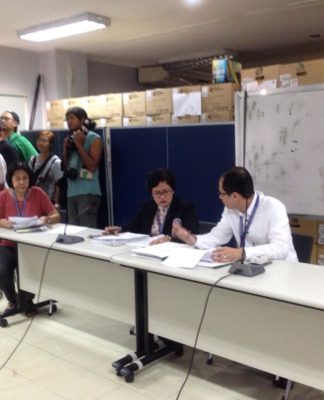TO ALIGN academics with the needs of businesses, government standards in business management, information technology, tourism and hotel and restaurant management, and electronics engineering courses will be reviewed.
The Commission on Higher Education (CHEd) and the Philippine Business for Education (PBEd), a non-government organization, signed a memorandum of cooperation last July 2 to review the policies, standards and guidelines of the four courses, which account for almost half of college enrollees in the country each year.
Patricia Licuanan and Ramon del Rosario Jr., chairpersons of CHEd and PBEd respectively, signed the three-year agreement in the presence of Julito Vitriolo, CHEd executive director, and Gloria Steele, mission director for the Philippines of the United States Agency for International Development.
The agreement aims to identify appropriate skills for working in the industry and to set standards to achieve global competencies.
“CHEd and PBEd, united in purpose and dedicated to the cause of education for human resource development, for sustainability and for inclusive growth, hereby resolve to pursue the objectives of this Memorandum of Cooperation pursuant to the principles of government-industry-academe public-private partnership collaboration,” according to the memorandum, a copy of which was obtained by the Varsitarian.
PBEd will recommend changes or addenda to existing academic programs. “[CHEd may] formulate appropriate CHEd Memorandum Orders (CMO) for particular disciplines or academic offerings that may be presented by PBEd either as amendments to existing CMOs, or for new programs,” according to the memorandum.
Last April, CHEd updated the list of priority courses for Academic Years 2011-2012 to 2015-2016 to “cope with the growing gap between the skills of graduates and the available jobs in the market.” This was contained in the addendum to CMO No. 4 series 2011 issued by Licuanan.
New courses on the list are those in natural sciences (biology, chemistry, marine biology, applied physics, geology, and earth science), mathematics (applied mathematics and statistics), psychology, accountancy and social welfare.















